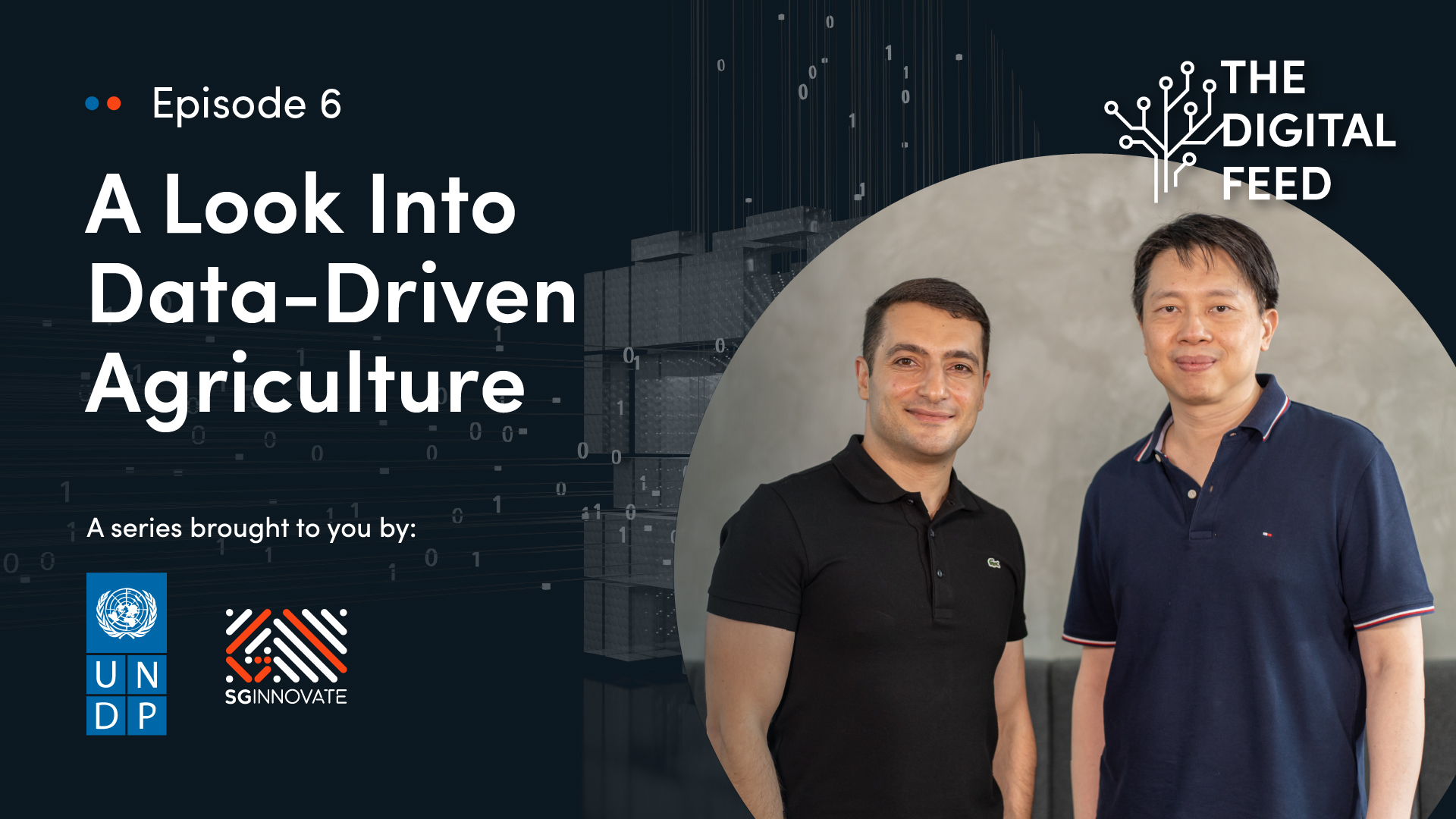The Digital Feed Episode 6: Data Can Make Farming More Efficient and Sustainable, Even for Smallholder Farmers
Mon, 12/21/2020 - 12:00
To learn more about the emerging role of data in agriculture, we spoke to David Chandra, Senior Director at Microsoft Technology Centre Asia-Pacific
Big data is revolutionising global food chains, starting at the farm. Insights from data on soil conditions, crop health, and weather can help farmers plan and optimise farming activities. By helping them cut down on the excessive use of agricultural inputs like water and pesticides, a data-driven approach to farming — known as ‘precision agriculture’ — can reduce the economic costs of farming as well as protect the environment.
To learn more about the emerging role of data in agriculture, we spoke to David Chandra, Senior Director at Microsoft Technology Centre Asia-Pacific, in the final episode of 2020.
“The power of precision farming [comes from] the combination of different data… Once you get [the data], what do you do with [it]? That’s when AI (artificial intelligence) can come in and really help”, said Chandra. Microsoft has developed FarmBeats: a platform that can combine data from various sources — in-field sensors, satellites, drones, and weather stations — and provide actionable insights to farmers using AI algorithms. “Democratising AI”, said Chandra, was a big theme behind developing FarmBeats.
Chandra pointed out a few challenges for adopting digital technologies in farming. “When you look at rural areas, wi-fi and internet [connectivity] is usually a problem”, he noted. Chandra briefly explained how a novel solution Microsoft is working on — using TV white space for long range wireless internet — can address the above problem.
Precision agriculture is currently being practised mostly on large farms and in developed countries. Chandra emphasised the importance of partnerships involving government agencies and NGOs for facilitating the transfer of technologies and know-how to smallholder farmers in developing countries. He also remarked that integrating technological education in the curricula of agricultural universities was “super critical” for achieving the above.
If you prefer to listen to an audio-only version of these episodes, check out our podcast channel on Spotify here.
This article was first published here. The Digital Feed is an interview series in collaboration with UNDP Global Centre for Technology, Innovation and Sustainable Development in Singapore. This series will delve into the latest developments, trends, and insights in AgriTech and the food space.
Trending Posts
- From satellites to startups, Singapore’s space sector is pushing new frontiers
- How leaders should rethink cybersecurity strategy
- How to Future-Proof a Career in Deep Tech? Start here.
- The future of fusion energy: What will it take to bring the power of the stars to earth?
- Keeping satellites safe: How CYSAT Asia 2026 is tackling space cybersecurity






